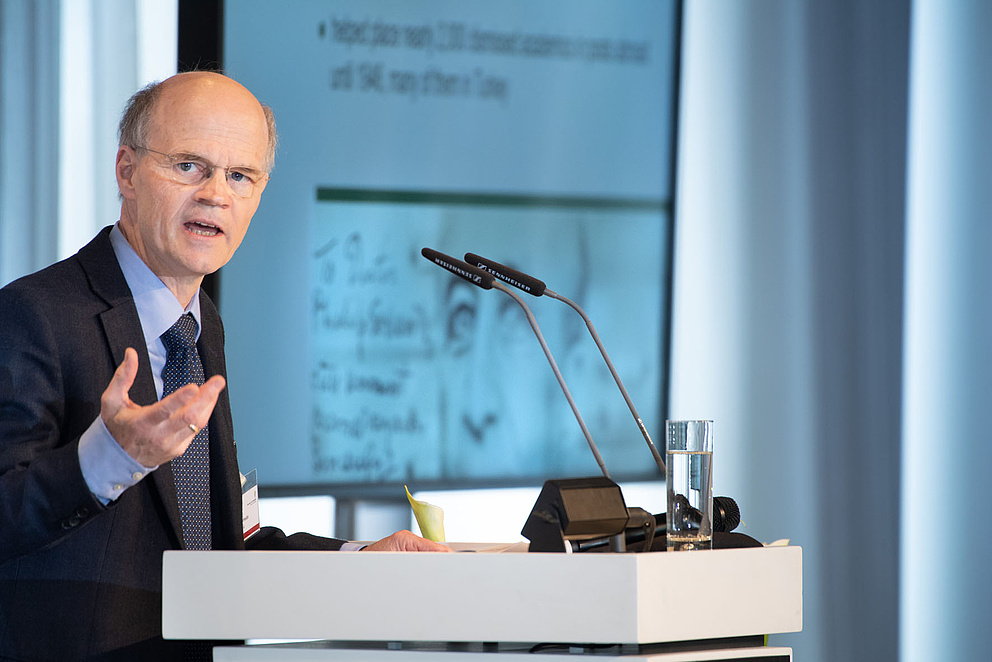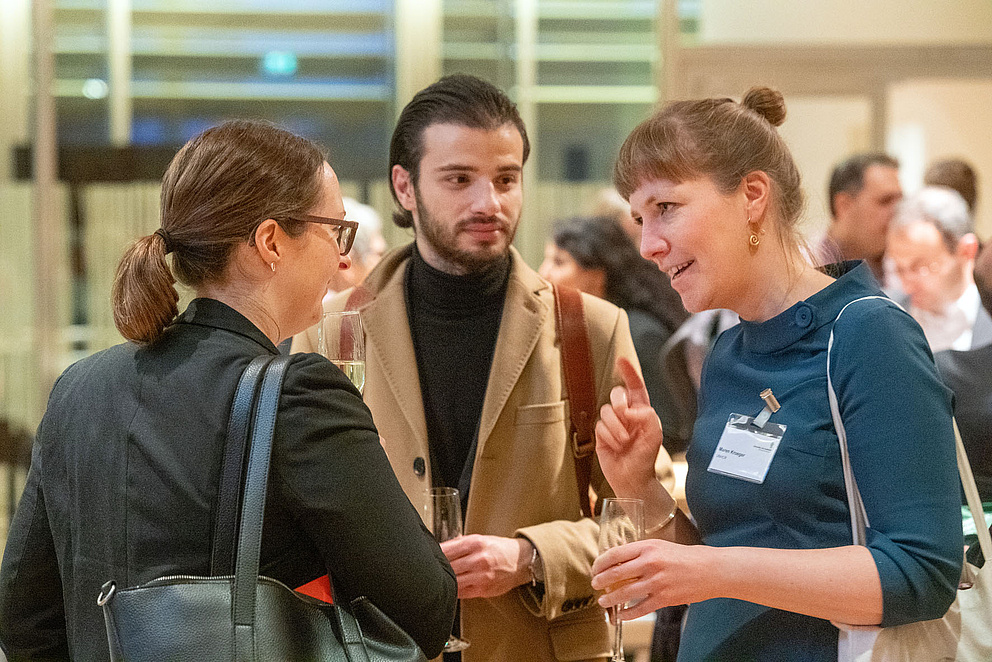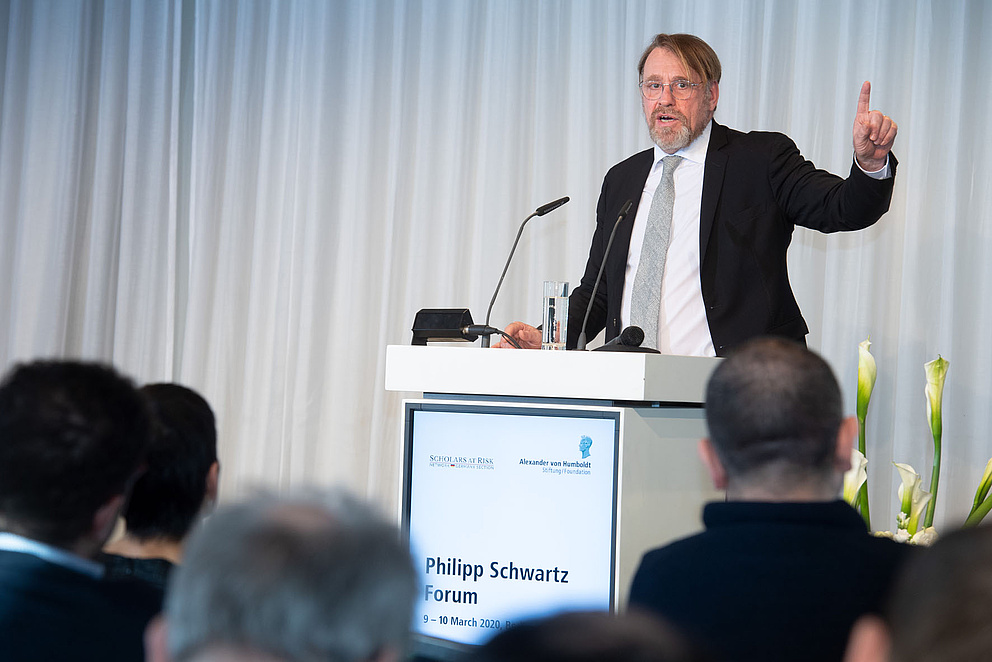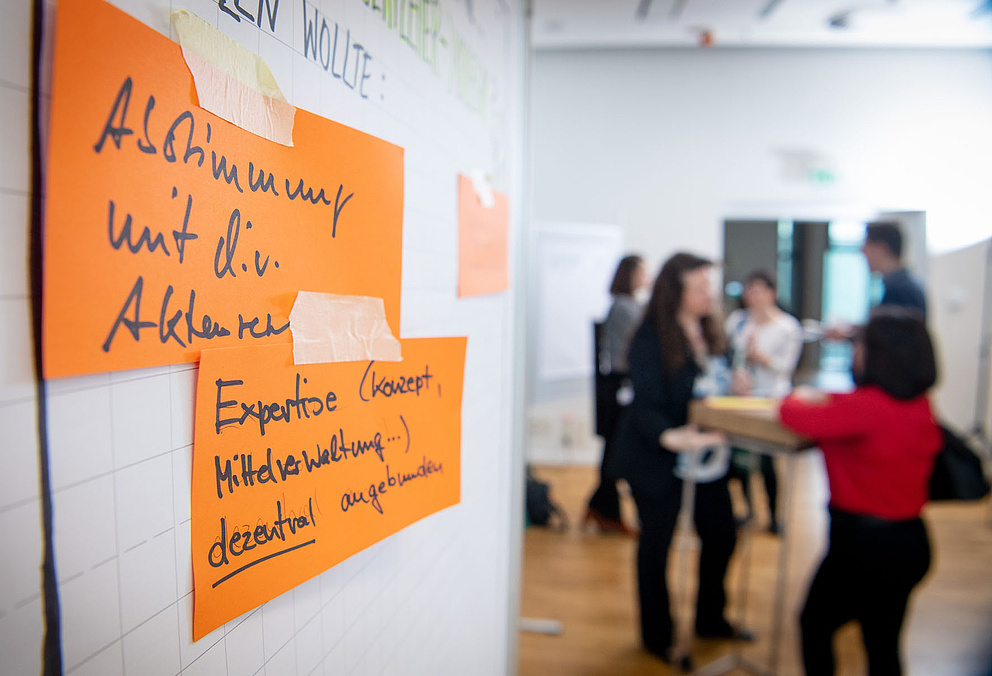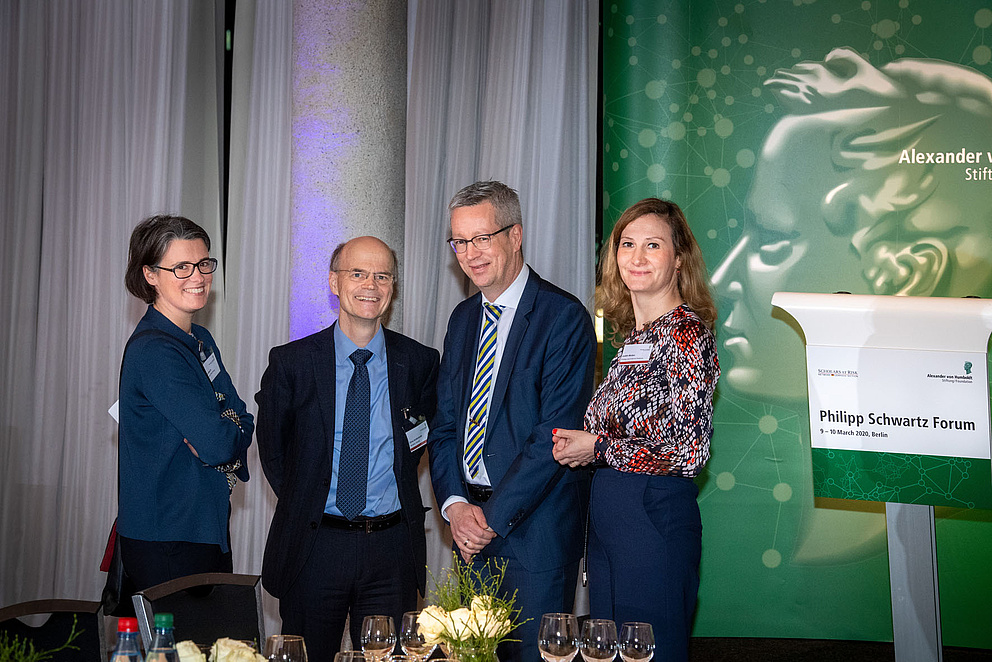
Contact
Press, Communications and Marketing
Tel.: +49 228 833-144
Fax: +49 228 833-441
presse[at]avh.de
The two-day conference centred on the question of what comes next for fellows of the Philipp Schwartz Initiative after their funding from the Humboldt Foundation comes to an end. “How to move from a temporary support programme connected to forced migration into a regular job market – this is the single most important issue”, said Enno Aufderheide, Secretary General of the Alexander von Humboldt Foundation, to explain the event's primary focus. Prefacing this, Aufderheide stressed that freedom of academic pursuit is the fundamental prerequisite for truly excellent research. The conference brought together many of the scholars and scientists who are at risk or persecuted in their home countries and are spending two years conducting research at a German institution as fellows of the Philipp Schwartz Initiative. “You brought hope to this country. Hope, that Germany will remain an open country. A country open not only to Germans, but also to people who come to Germany and bring their differences with them”, Andreas Görgen, head of the Directorate-General for Culture and Communication at the German Federal Foreign Office, added, addressing the Philipp Schwartz Fellows.
Enno Aufderheide, Secretary General of the Humboldt Foundation, at the Philipp Schwartz Forum 2020 (Photo: Humboldt Foundation/David Ausserhofer)
The Philipp Schwartz Forum revolved around sharing views and information regarding topical questions, such as: What do researchers at risk who had to leave their countries experience at their new location? What challenges and opportunities arise for them during and after their sponsorship through the Philipp Schwartz Initiative? The researchers stressed that greater attention must be given to the transition from a fellowship to the German labour market. In addition, they commented, it is nearly impossible to find a job − be it in an academic setting or in the general labour market − without a very good command of the German language. For this reason, they noted, it would be sensible to additionally focus on learning German.
Freedom is a prerequisite for research
In his dinner speech, Günter M. Ziegler, President of the Freie Universität Berlin, discussed the history of academic freedom and underscored the guiding principles laid down by the founders of the Freie Universität: truth, justice and freedom. “For the Freie Universität, the notion of academic freedom is deeply rooted in the university's history. Freedom is the fundamental prerequisite for research.” In closing, he underscored the need for solidarity between the participating institutions in their efforts to protect researchers at risk: “What is needed of us in order to protect academic freedom is unity.”
The Philipp Schwartz Initiative
The Philipp Schwartz Initiative provides universities and research institutions in Germany with the means to host threatened foreign researchers for a period of 24 months on a fully funded research fellowship. An extension is possible under a co-financing model.
The Philipp Schwartz Initiative is financed by the Federal Foreign Office, the Alfried Krupp von Bohlen und Halbach Foundation, the Andrew W. Mellon Foundation, the Fritz Thyssen Foundation, the Gerda Henkel Foundation, the Klaus Tschira Foundation, the Robert Bosch Stiftung and the Stiftung Mercator.

